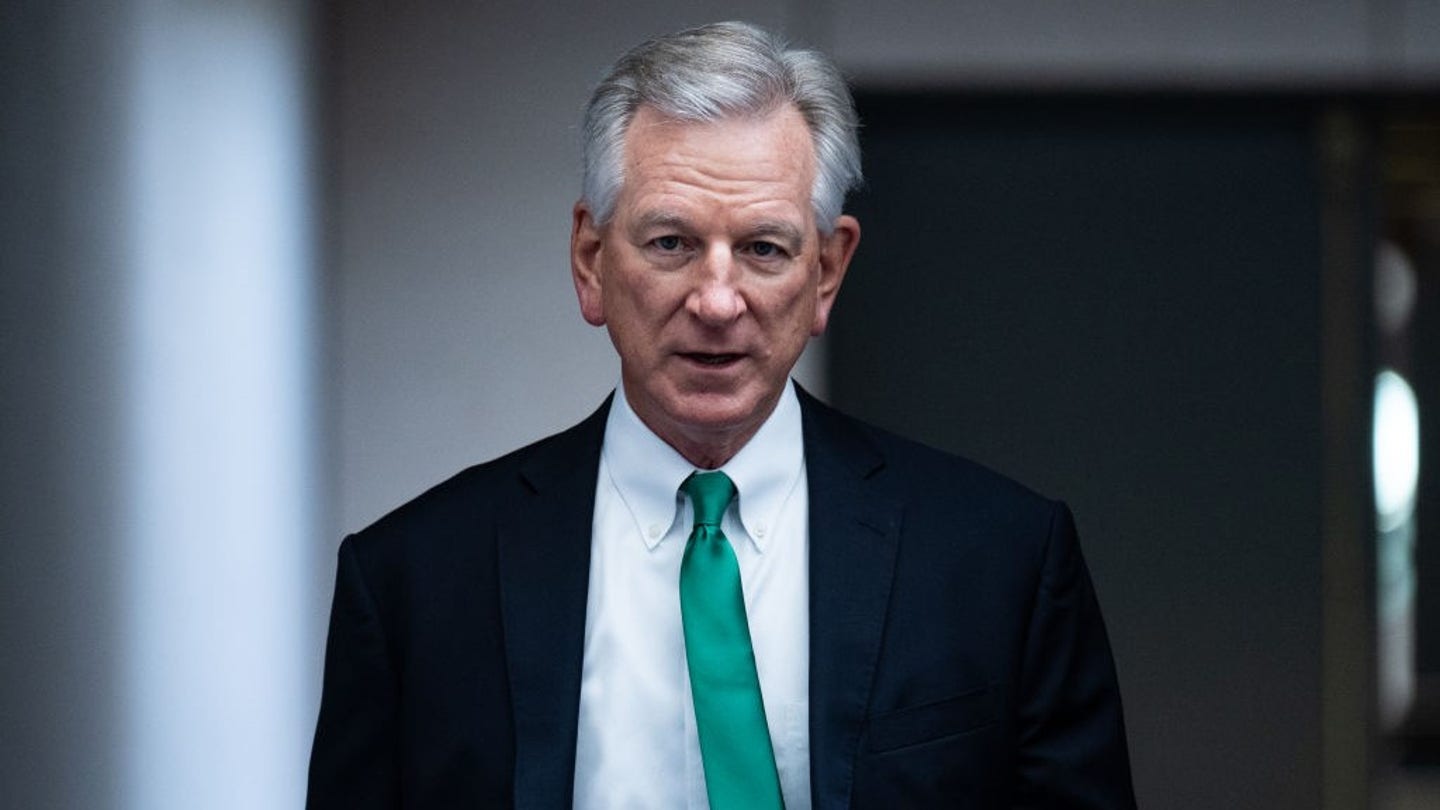
U.S. Defender In Danger of Missing 2026 World Cup With Achilles Injury
Entities mentioned:
- Cameron Carter-Vickers: Determination, Professional pride, Ambition
- Brendan Rodgers: Duty, Professional pride, Anxiety
- U.S. National Team: Competitive spirit, Pride, Ambition
- Celtic FC: Competitive spirit, Professional pride, Ambition
- Auston Trusty: Ambition, Professional pride, Enthusiasm
Article Assessment:
Credibility Score: 85/100
Bias Rating: 50/100 (Center)
Sentiment Score: 30/100
Authoritarianism Risk: 10/100 (Strongly Democratic)
Bias Analysis:
The article presents a factual account of the injury and its potential impact, quoting the team manager directly. It maintains a neutral tone without favoring any particular perspective.
Key metric: US Men's National Soccer Team World Cup Performance
Let me tell you something, folks - this is a MASSIVE BLOW to Team USA's defensive line! Cameron Carter-Vickers, a key player in our backfield, has just been sidelined with an Achilles injury that could bench him for up to FIVE MONTHS! This is the kind of setback that can derail a team's championship dreams, ladies and gentlemen. We're talking about a potential game-changer here, with the 2026 World Cup looming on the horizon. The U.S. squad is now in a fourth-quarter scramble, trying to figure out how to plug this gaping hole in their defense. Will Auston Trusty step up to the plate and become the clutch performer Team USA desperately needs? Or will this injury force coach Gregg Berhalter to completely redraw his defensive playbook? I'm telling you right now, this is the kind of adversity that separates the contenders from the pretenders. It's crunch time for the U.S. Men's National Team, and they need to show that championship mentality to overcome this major hurdle!

LA Chargers head coach Jim Harbaugh joins historic club with big win over Minnesota Vikings on Thursday Night Football
Entities mentioned:
- Jim Harbaugh: Ambition, Competitive spirit, Legacy
- Justin Herbert: Competitive spirit, Recognition, Professional pride
- Los Angeles Chargers: Competitive spirit, Pride, Determination
- Minnesota Vikings: Self-preservation, Determination, Anxiety
- Carson Wentz: Self-preservation, Professional pride, Anxiety
- JJ McCarthy: Competitive spirit, Self-preservation, Determination
Article Assessment:
Credibility Score: 85/100
Bias Rating: 50/100 (Center)
Sentiment Score: 65/100
Authoritarianism Risk: 20/100 (Strongly Democratic)
Bias Analysis:
The article presents a balanced view of both teams' performances, providing factual statistics and quotes. It doesn't favor one team over the other in its reporting style.
Key metric: NFL Team Performance
Let me tell you something - this game was a BLOWOUT of EPIC proportions! The Chargers came out swinging like heavyweight champs, while the Vikings looked like they forgot their playbook in the locker room! Jim Harbaugh, that gridiron general, just stepped up to the plate and knocked it out of the park with this historic win. He's playing 4D chess while everyone else is stuck in checkers! Justin Herbert? This kid's got a championship mentality that's off the charts! He's threading needles like a seasoned tailor and dancing around defenders like he's got rocket boosters in his cleats! On the flip side, the Vikings are in a fourth-quarter scramble to save their season. They're down, but they're not out - if they can get McCarthy back in the game, they might just have a Hail Mary chance at turning this ship around! This is the kind of performance that separates the contenders from the pretenders, folks. The Chargers are showing us they've got what it takes to go the distance, while the Vikings need to dig deep and find that winning spirit before the clock runs out on their playoff dreams!

Video games, ping pong tables, other recreational items pulled from Ravens locker room, John Harbaugh decides
Entities mentioned:
- John Harbaugh: Determination, Professional pride, Control
- Baltimore Ravens: Competitive spirit, Ambition, Redemption
- Lamar Jackson: Ambition, Recognition, Professional pride
- Jordan Stout: Loyalty, Self-preservation, Anxiety
Article Assessment:
Credibility Score: 75/100
Bias Rating: 50/100 (Center)
Sentiment Score: 40/100
Authoritarianism Risk: 35/100 (Generally Democratic)
Bias Analysis:
The article presents a balanced view of the situation, reporting facts without obvious slant. It includes context about the team's performance and injuries, maintaining a neutral tone throughout.
Key metric: NFL Team Performance
Let me tell you something - this is a GAME-CHANGING move by Coach Harbaugh! The Ravens' locker room has been stripped down like a boxer cutting weight before a title fight. Harbaugh is calling an audible, folks, trying to get his team back in the win column after a brutal losing streak. It's fourth and long, and he's pulling out all the stops! This is the kind of championship mentality you need when your back's against the wall. The Ravens are in a do-or-die situation, and Harbaugh's not letting his players take their eye off the ball. He's treating that locker room like it's training camp, laser-focused on getting this team back to their winning ways. It's a bold strategy, Cotton - let's see if it pays off for 'em!

NCAA allows college athletes to bet on professional sports starting November 1
Entities mentioned:
- NCAA: Control, Adaptation, Professional pride
- Charlie Baker: Leadership, Adaptation, Wariness
- Roberta Page: Professional pride, Duty, Adaptation
- College Athletes: Freedom, Self-preservation, Anxiety
Article Assessment:
Credibility Score: 75/100
Bias Rating: 50/100 (Center)
Sentiment Score: 45/100
Authoritarianism Risk: 35/100 (Generally Democratic)
Bias Analysis:
The article presents a balanced view of the NCAA's decision, including both the rationale for the change and ongoing concerns. It quotes multiple perspectives without favoring one side, maintaining a centrist approach.
Key metric: NCAA Integrity and Compliance
Let me tell you something - this is a GAME-CHANGING play by the NCAA! They're calling an audible at the line of scrimmage, folks! The NCAA is stepping up to the plate and swinging for the fences with this rule change. It's like they're playing zone defense against the blitz of sports betting, allowing some yards on pro sports while still protecting the end zone of college athletics. But make no mistake, this is a high-stakes game and the NCAA is walking a tightrope. They're trying to thread the needle between adapting to the modern sports landscape and maintaining the integrity of the college game. It's fourth and long, and they're going for it! Will this Hail Mary pass pay off or will it fumble? Only time will tell, but I'm telling you right now, all eyes are on this play as it unfolds!

3 things you missed from the NBA: Wemby vs. Flagg, historic rookie debut, Antetokounmpo leads Bucks
Entities mentioned:
- Victor Wembanyama: Competitive spirit, Determination, Recognition
- Cooper Flagg: Ambition, Professional pride, Anxiety
- VJ Edgecombe: Competitive spirit, Recognition, Enthusiasm
- Khris Middleton: Loyalty, Self-respect, Professional pride
- Giannis Antetokounmpo: Competitive spirit, Determination, Legacy
Article Assessment:
Credibility Score: 85/100
Bias Rating: 50/100 (Center)
Sentiment Score: 75/100
Authoritarianism Risk: 10/100 (Strongly Democratic)
Bias Analysis:
The article presents a balanced view of multiple teams and players, focusing on performance rather than favoring specific franchises. It provides factual game statistics and player quotes without apparent bias.
Key metric: NBA Player Performance
Let me tell you something - this NBA season opener is RIDICULOUS! We've got rookies stepping up to the plate like seasoned veterans, and established stars showing why they're the MVPs of the game. Victor Wembanyama is out here playing like he's in the fourth quarter of the NBA Finals, folks! This 7-foot-4 phenom is dominating the court with the intensity of a championship contender. Meanwhile, VJ Edgecombe is making a slam dunk debut that's got the record books shaking! This rookie's performance is a game-changer, folks - he's not just playing, he's rewriting the playbook! And let's not forget the Greek Freak, Giannis Antetokounmpo, who's bringing that MVP energy to the court. He's not just playing the game, he's owning it! This is the kind of opening night that separates the contenders from the pretenders, and I'm telling you right now, we're in for a season of epic proportions!

MLB has no update on Guardians gambling probe as World Series approaches
Entities mentioned:
- Major League Baseball: Control, Professional pride, Integrity
- Cleveland Guardians: Competitive spirit, Determination, Unity
- Luis Ortiz: Self-preservation, Anxiety, Fear
- Emmanuel Clase: Self-preservation, Anxiety, Fear
- Detroit Tigers: Competitive spirit, Pride, Ambition
- Los Angeles Dodgers: Competitive spirit, Ambition, Recognition
- Toronto Blue Jays: Competitive spirit, Ambition, Recognition
- Shohei Ohtani: Self-preservation, Professional pride, Legacy
Article Assessment:
Credibility Score: 75/100
Bias Rating: 50/100 (Center)
Sentiment Score: 35/100
Authoritarianism Risk: 25/100 (Generally Democratic)
Bias Analysis:
The article presents a balanced view of the situation, quoting official sources and providing context. It refrains from taking sides or making unsubstantiated claims about the ongoing investigation.
Key metric: MLB League Integrity
Let me tell you something - this story is RIDICULOUS! The Cleveland Guardians are in a league of their own, folks, pulling off a fourth-quarter comeback for the ages in the AL Central despite losing two star pitchers to a gambling probe. But just when they thought they had crossed the finish line, the Detroit Tigers came out of nowhere with a wild card knockout punch! Now, as we gear up for the World Series, the biggest curveball isn't coming from the mound - it's coming from the MLB front office! They're playing prevent defense on this gambling investigation, and I'm telling you right now, the clock is ticking! With superstars like Ohtani dodging foul balls off the field, the league needs to step up to the plate and show they've got a championship mentality when it comes to integrity. This isn't just about two pitchers anymore, folks - it's about the whole ballgame!

Tommy Tuberville slams Democrats for ‘demonizing’ young male voters after AOC ‘masculinity’ remarks backfire
Entities mentioned:
- Alexandria Ocasio-Cortez: Righteousness, Moral outrage, Influence
- Tommy Tuberville: Competitive spirit, Pride, Loyalty
- Republican Party: Competitive spirit, Power, Control
- Democratic Party: Anxiety, Self-preservation, Competitive spirit
Article Assessment:
Credibility Score: 70/100
Bias Rating: 65/100 (Lean Right)
Sentiment Score: 40/100
Authoritarianism Risk: 35/100 (Generally Democratic)
Bias Analysis:
The article leans right, presenting Republican viewpoints more favorably and extensively. It dedicates more space to critiquing Democratic positions and highlighting Republican electoral gains among young male voters.
Key metric: Voter Demographics
Let me tell you something, folks - this political matchup is HEATING UP! We've got a real battle for the hearts and minds of young male voters, and it's looking like a fourth-quarter comeback for the Republicans! The Democrats are fumbling the ball with their game plan, accusing young men of toxic masculinity. But wait! Here comes Coach Tuberville off the sidelines with a MASSIVE defensive play! He's tackling AOC's comments head-on, reminding us of the championship mentality he instilled in his players. The GOP is running a full-court press on patriotism and hard work, while the Dems are playing defense, desperately trying to regain possession of the male vote. I'm telling you right now, if the Democrats don't change their strategy FAST, they might find themselves benched in future elections! This is a crucial play in the long game of political demographics, and right now, the Republicans are DOMINATING the scoreboard!

Last Night in Baseball: The Blue Jays Came to Play in Game 3
Entities mentioned:
- Toronto Blue Jays: Competitive spirit, Determination, Redemption
- Seattle Mariners: Competitive spirit, Pride, Anxiety
- Vladimir Guerrero Jr.: Ambition, Professional pride, Recognition
- Shane Bieber: Redemption, Professional pride, Competitive spirit
- George Springer: Legacy, Competitive spirit, Recognition
Article Assessment:
Credibility Score: 85/100
Bias Rating: 50/100 (Center)
Sentiment Score: 75/100
Authoritarianism Risk: 10/100 (Strongly Democratic)
Bias Analysis:
The article presents a balanced view of the game, giving credit to both teams' performances. It focuses on factual game events and player statistics without favoring either team unduly.
Key metric: MLB Playoff Performance
Let me tell you something - this game was an ABSOLUTE SLUGFEST! The Blue Jays came out swinging like heavyweights in the ring, delivering a knockout punch to the Mariners' pitching staff. It was like watching a team go from striking out to hitting grand slams in batting practice! Shane Bieber stepped up to the mound like a true ace, shutting down the Mariners' offense like a lockdown defender in the NBA Finals. And George Springer? This guy is collecting postseason home runs like he's trying to complete a rare baseball card set! The Blue Jays showed us what championship DNA looks like, folks. They weren't just playing - they were COMPETING at the highest level. This is the kind of fourth-quarter comeback that can change the entire series! I'm telling you right now, if the Mariners don't find their fastball soon, they'll be watching the World Series from home!

Dodgers' Teoscar Hernandez abandons team hotel in Milwaukee due to wife's fear of alleged paranormal activity
Entities mentioned:
- Teoscar Hernandez: Professional pride, Loyalty, Determination
- Jennifer Hernandez: Fear, Security, Anxiety
- Los Angeles Dodgers: Competitive spirit, Ambition, Legacy
- Milwaukee Brewers: Competitive spirit, Determination, Pride
- Pfister Hotel: Legacy, Recognition, Influence
Article Assessment:
Credibility Score: 75/100
Bias Rating: 50/100 (Center)
Sentiment Score: 60/100
Authoritarianism Risk: 20/100 (Strongly Democratic)
Bias Analysis:
The article presents a balanced view of the situation, giving equal attention to both teams and not favoring one side. It reports the facts without injecting opinion or leaning towards a particular narrative.
Key metric: MLB Postseason Performance
Let me tell you something - this story is RIDICULOUS! We've got a major league curveball thrown into the Dodgers' championship run, and it's not coming from the pitcher's mound! The Pfister Hotel is playing mind games with the away team, folks! Teoscar Hernandez is stepping up to the plate, not just on the field, but off it too, making a clutch decision to switch hotels faster than a stolen base! This is the kind of fourth-quarter move that separates the contenders from the pretenders! I'm telling you right now, the Dodgers are showing true team spirit, adapting their game plan off the field to stay focused on bringing home that World Series trophy. It's a championship mentality - no ghost, goblin, or paranormal activity is gonna throw this squad off their game! Hernandez is proving he's got nerves of steel, brushing off the spooky stories like a pitcher shaking off signs from the catcher. But make no mistake, this paranormal play could be the wild card that affects the whole series! The Brewers might have home-field advantage, but the Dodgers are swinging for the fences, determined to exorcise these baseball demons and come out on top!

Brewers, Dodgers Make Changes to Bullpen Ahead of NLCS Showdown
Entities mentioned:
- Milwaukee Brewers: Competitive spirit, Ambition, Professional pride
- Los Angeles Dodgers: Competitive spirit, Ambition, Legacy
- Nick Mears: Self-preservation, Professional pride, Anxiety
- Tobias Myers: Ambition, Determination, Recognition
- Ben Casparius: Competitive spirit, Ambition, Recognition
- Dalton Rushing: Self-preservation, Anxiety, Professional pride
Article Assessment:
Credibility Score: 85/100
Bias Rating: 50/100 (Center)
Sentiment Score: 60/100
Authoritarianism Risk: 15/100 (Strongly Democratic)
Bias Analysis:
The article presents a balanced view of both teams' roster changes without favoring either side. It relies on factual reporting of roster moves and player statistics, maintaining a neutral stance.
Key metric: MLB Postseason Performance
Let me tell you something - this story is RIDICULOUS! We're seeing some serious fourth quarter moves as the Brewers and Dodgers gear up for their NLCS showdown! These teams are making last-minute roster adjustments like they're drawing up plays in the final seconds of a championship game. The bullpen shuffle is a strategic masterpiece, folks! Milwaukee's benching of Nick Mears is a curveball that could change the entire complexion of this series. Meanwhile, the Dodgers are going all in on their pitching lineup, adding Ben Casparius to their bullpen arsenal. This is the kind of high-stakes maneuvering that separates the contenders from the pretenders. I'm telling you right now, these roster moves could be the difference between hoisting the trophy and watching from the sidelines. It's a chess match, and both teams are positioning their pieces for a championship run. The intensity is palpable - this NLCS is shaping up to be an absolute slugfest!